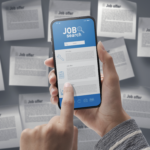The continuum of tools that help feed smart choices are coalescing, bringing together hygiene factors such as data quality and cleansing and front-end aspects such as visualisation via querying, warehousing, data lakes and marts and MDM, with fast-growing additions such as data science, AI and Machine Learning. But what does that mean for the other critical elements of decision-making that complete the classic business framework triumvirate of People, Process and Technology?
As with any major change, the shift towards comprehensive digital tooling for decision-making will mean we have to think again about how we deploy tools and work with them. To capitalise on these integrated toolkits, we will need sharply different approaches as to how we make decisions and who gets involved in that decision-making process.
People power
Specifically, we will need people who are data literate, know when to make human decisions, and understand how best to use data as auditable evidence for making those decisions. So far, so obvious, right? Data literacy is one of the great memes of our digital times and the ongoing debate over recruiting and educating pure data scientists and equipping others to work with them is healthy and advanced.
But it is likely that we will need more than people who know data and people who know enough to collaborate with them. It’s likely that we will need more ‘T-shaped’ people who have strong knowledge and skills in one discipline but also have the interest and ability to collaborate in one or several more. Most in demand are ‘E-shaped’ people: those who have expertise and experience but also the exploration and execution capabilities to drive the organisation forward. And, if we may add another E, the empathy to be able to work with others and bring them through.
We will need hybrid all-rounders who can view challenges in the round rather than in isolation. ‘I-shaped’ specialists who see everything through a single lens or offer a sole core competency will be relatively less important, although they will be needed in a world where Ts and Es are scarce, and they can still play a huge part if motivated and managed appropriately.
Data decisioning can’t reside in an ivory tower. It is a practice that is opening out to non-specialists and the rank and file. A series of trends point to democratisation and pluralism. Let’s look at some of the ways this is happening.
Organisations are getting larger and more complex. In 2019, the Harvard Business Review found that the gap between large and small organisations was growing and has been growing since at least the mid-1990s, with few exceptions. Proof, the HBR suggested, that, in the words of former IBM CEO Lou Gerstner, “Elephants can dance”. And as globalisation continues and as M&A becomes accepted as a successful route to growth, companies are having to pirouette and devolve decision-making to avoid analysis paralysis.
Low-code/no-code development. It’s getting far easier for non-programmers to become usefully involved with software building. Development projects are much shorter and faster, and they involve stakeholders working alongside techies as sprints, scrums and Agile methodology have become default project and culture settings for many.
Self-service data preparation. It’s easier for departmental users to select from options in an app store-like way. They no longer need hand-holding all the way through processes and can often analyse their own data without any help at all once they have been trained. As natural language processing and visual, drag-and-drop programming evolve and become the norm, we can expect more of the same.
To succeed and make the right calls for their organisations’ futures, leaders will need to maintain excellent hiring and retention plans. CHROs will be kept busy hiring and inspiring people who are not just data scientists or prompt engineers but also storytellers, communicators, creatives, and team leaders who can access proliferating tools and apply them to good use. Continuous learning and access to modern tools and equipment will be key, as will flexibility in working conditions.
Finally, organisations will need to understand the importance of constant iteration in business plans and operations. Five-year plans already look ridiculous and even one-year plans will have to be made with the understanding that they are not set in stone but malleable and subject to constant tweaking and even U-turns. Changes in operations and areas such as go-to-market activities, supply chains, demographic audiences and sales and marketing tactics should be expected to exist in a state of positive flux. Committing to a plan and patience may have their place… just not everywhere and all the time.
This then is the modern enterprise. It sources its evidence for decision making from a wide field and uses tools that are joined up and resistant to data silos appearing. They hire people who accept a certain amount of chaos and can work with a wide range of others with complementary skills. And they don’t get stuck in fixed ideas about what the business is today because they know that can change tomorrow.
As with any major change program, this won’t be easy. The alternative to change, however, — stasis and fear — is much worse though.









